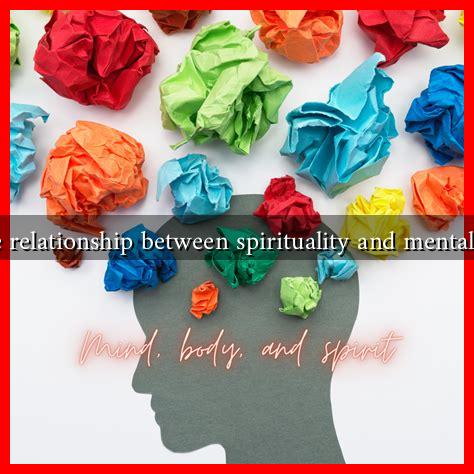-
Table of Contents
What is the Relationship Between Spirituality and Mental Well-Being?
In recent years, the connection between spirituality and mental well-being has garnered significant attention from researchers, mental health professionals, and individuals seeking a deeper understanding of their own lives. While spirituality can mean different things to different people, it generally encompasses a sense of connection to something greater than oneself, which can manifest through religion, personal beliefs, or a quest for meaning. This article explores the intricate relationship between spirituality and mental well-being, highlighting the benefits, challenges, and practical applications of integrating spirituality into mental health practices.
The Benefits of Spirituality on Mental Health
Numerous studies have indicated that spirituality can have a positive impact on mental health. Here are some of the key benefits:
- Enhanced Coping Mechanisms: Spirituality often provides individuals with a framework for understanding and coping with life’s challenges. For instance, a study published in the Journal of Religion and Health found that individuals who engage in spiritual practices report better coping strategies during stressful times.
- Increased Resilience: Spiritual beliefs can foster resilience, helping individuals bounce back from adversity. Research shows that those with a strong spiritual foundation are more likely to maintain a positive outlook in the face of difficulties.
- Improved Emotional Well-Being: Engaging in spiritual practices such as meditation, prayer, or mindfulness can lead to reduced anxiety and depression. A meta-analysis published in Psychological Bulletin found that mindfulness-based interventions significantly improve emotional regulation.
- Sense of Purpose: Spirituality often provides individuals with a sense of purpose and meaning in life, which is crucial for mental well-being. A study in the American Journal of Lifestyle Medicine highlighted that individuals with a strong sense of purpose tend to experience lower levels of stress and higher levels of happiness.
Challenges and Misconceptions
While spirituality can be beneficial, it is essential to recognize that it is not a panacea for all mental health issues. Some challenges and misconceptions include:
- Over-Reliance on Spirituality: Some individuals may rely solely on spiritual practices to address mental health issues, neglecting the importance of professional help. It is crucial to strike a balance between spiritual practices and evidence-based mental health treatments.
- Spiritual Bypassing: This term refers to the tendency to use spiritual beliefs to avoid dealing with emotional pain or psychological issues. It can lead to unresolved trauma and hinder personal growth.
- Misinterpretation of Spirituality: Spirituality can sometimes be misconstrued as dogmatic or rigid, leading to feelings of guilt or shame when individuals struggle with their beliefs. It is essential to approach spirituality with an open mind and a personal understanding.
Practical Applications of Spirituality in Mental Health
Integrating spirituality into mental health practices can be beneficial for both practitioners and clients. Here are some practical applications:
- Mindfulness and Meditation: Incorporating mindfulness practices into therapy can help clients develop a deeper connection to their inner selves and promote emotional regulation.
- Spiritual Counseling: Mental health professionals can offer spiritual counseling as part of their practice, helping clients explore their beliefs and how they relate to their mental health.
- Support Groups: Spiritual support groups can provide a safe space for individuals to share their experiences and find community, which is vital for mental well-being.
Conclusion
The relationship between spirituality and mental well-being is complex and multifaceted. While spirituality can offer numerous benefits, including enhanced coping mechanisms, increased resilience, and a sense of purpose, it is essential to approach it with a balanced perspective. Recognizing the challenges and misconceptions surrounding spirituality can help individuals and mental health professionals create a more holistic approach to mental well-being. By integrating spirituality into mental health practices, we can foster a deeper understanding of ourselves and promote overall mental health.
In summary, spirituality can be a powerful ally in the journey toward mental well-being, but it should complement, not replace, traditional mental health treatments. As we continue to explore this relationship, it is crucial to remain open-minded and adaptable, allowing for personal growth and healing.

